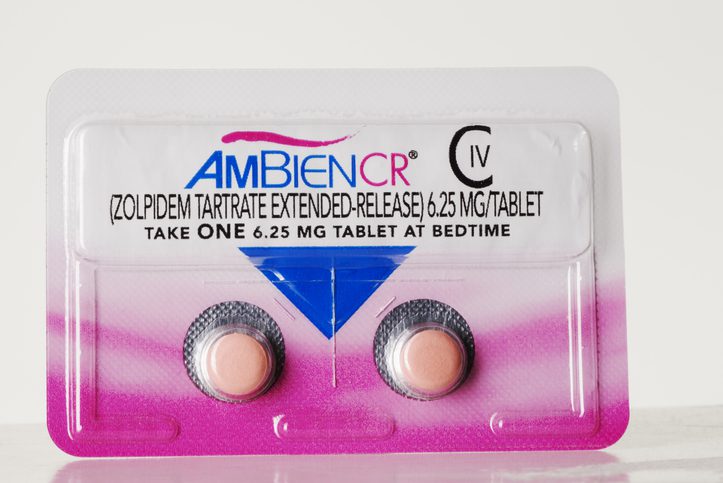Ambien is a powerful prescription drug used by many people to help them get a good night’s sleep. Initially, it was thought that Ambien was a safer and less addictive alternative to benzodiazepines. However, the results of research studies reported by the US National Library of Medicine National Institutes of Health show that Ambien can be abused and lead to addiction.
What is Ambien?
Ambien, also known by the generic name zolpidem, is classified as a Schedule IV drug and a sedative-hypnotic. It slows down the user’s brain and central nervous system by activating the neurotransmitter GABA. Ambien is not intended for long-term use.
Other drugs classified as sedative-hypnotic act in a similar way. The most well-known of these include Ativan, Xanax, Valium, Lunesta, Restoril, Sonata, Seconal, and Intermezzo.
Taking Ambien: the Side Effects and Risks
As with most drugs or medications, Ambien comes with side effects and risks. Daytime drowsiness, dizziness, lightheadedness, lack of coordination, and memory loss are some of the side effects of Ambien. Feelings of depression, anxiety, agitation, and aggression can also occur. Ambien slows down the user’s breathing and reduces their heart rate.
Other possible side effects include:
- Slowed reaction time
- Impaired driving
- Confusion
- Nightmares
- Hallucinations
- Suicidal thoughts
It is possible to become physically dependent on Ambien in just two weeks, requiring that the user take more of the drug to get the same effect. Someone who is dependent on Ambien will also experience withdrawal symptoms if they stop or reduce the amount of Ambien they are taking.
Ambien Addiction
Once a person has developed a dependence on Ambien, an addiction to the drug can occur. When someone is addicted to the drug, they are not able to control their use. They use it compulsively regardless of any consequences or harm that may occur. The brain desires to satisfy the deep cravings created by the addiction.
Certain behaviors could be an indication of addiction to Ambien, such as taking more of the drug or taking it more often than prescribed, or taking Ambien that was prescribed for someone else. Borrowing or stealing pills from family or friends, buying them illegally, or doctor-shopping to get more than one prescription are also indications of addiction.
Additional indications of addiction include:
- Inability to carry out normal responsibilities, including those related to home life, school, or work
- Losing interest in hobbies, activities, or other things that were once enjoyed
- Being secretive, withdrawing from family and friends, self-isolation
- Engaging in dangerous, risky, or impulsive behaviors
- Experiencing financial, legal, or relationship problems
- Changing the way of taking Ambien, such as crushing, injecting, or snorting it
- Mixing it with alcohol or another drug
For some users of Ambien, the drug acts as a stimulant when taken in extremely high doses, creating feelings of euphoria and pleasure. This occurs because of changes to the brain’s receptors caused by the drug.
Symptoms of an Ambien Overdose
Taking too much Ambien can result in an overdose. Because the drug is a fast-acting sedative, a person can become unconscious quickly and could go into a coma. Symptoms to be aware of include:
- Slowed heart rate
- Slowed or abnormal breathing
- Extreme drowsiness
- Confusion
- Irrational thoughts
Even if unconsciousness and coma occur, it is possible to survive an overdose if treatment is immediate. Although fatalities have occurred from an overdose of Ambien alone, death is more likely to occur if the drug is taken with alcohol or another drug.
Ambien Withdrawal and Symptoms
Withdrawal symptoms from Ambien could begin within 48 hours of stopping or taking less of the drug. The severity of symptoms depends on many factors, including how often the drug was used, how much was used, and the length of time the drug was taken. Other factors include age, how the drug was administered, whether it was taken with another substance, and if there were any complications during previous withdrawal attempts.
As the body begins to remove the toxic substance during withdrawal, sweating, nausea, vomiting, and shakiness occur. The person may experience insomnia, anxiety, and panic attacks. They may get a headache and feel muscle cramps, aches, and pains. Their pulse and breathing rates will increase, and their blood pressure will go up.
Other symptoms of withdrawal may include:
- Difficulty speaking
- Restlessness and jerky body movements
- Confusion
- Delirium
- Hallucinations
- Grand mal seizures
Ambien withdrawal symptoms generally resolve within one to two weeks.
Do You Need Help?
If you or a loved one is struggling with an addiction to Ambien or any other substance, now is the time to get the help you need. You are not alone. Caring professionals at Ivory Plains are ready to help you overcome your addiction. They will guide you through the recovery process using a combination of psychiatric care, evidence-based addiction treatments, and holistic therapies. Now is the time to take the first step. Call Ivory Plains Recovery Center today and begin your journey to living a healthy, clean, and sober life.








